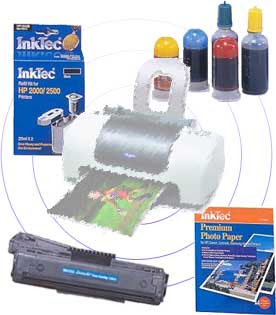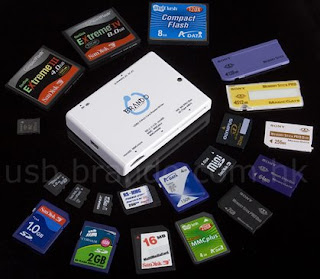Stop using an ordinary power strip - buy and install a good quality surge protector
Electrical storms, lighting strikes, blackouts and car accidents involving power lines all can cause momentary power surges or voltage spikes. These uncontrolled spikes can adversely affect the smooth flow of power to your computer (i.e. fry the components!)
That's why you need to buy and install a good quality surge protector. A good protector should have at least the Underwriter's Lab standard rating of 1449. Look for a label with the words, "transient voltage surge suppressor" and UL 1449.
Stop "forgetting" to do at least a weekly backup
The next question I usually ask, is "Do you have any backups?" More hang-dog looks and shaking of the heads, no.
You can recover from 90% of major computer malfunctions if (and this is the big "IF") you have backup copies of your operating system and data files. Without backups, your dead PC becomes a very expensive metal door stop. Remember the richest man in the world (Bill Gates) made all his fortune with software...not hardware.
Buy a good backup program like Acronis True Image Home or an online service like Mozy.com. Okay... Let's be frank here..."THE" best thing you can do for yourself and your computer is to setup a backup system and stick to it!
Stop downloading, installing and uninstalling lots of and lots of programs; especially unknown freeware and beta applications.
I know this is toughie. The Internet is just full of cool, free and useful software products and utilities. Hey, I couldn't run my little home business without some of them. But folks, spammers and spyware kings have long since known that everyone loves a bargain. And they write up their "products" as freebies too!
Some the most persistent and difficult to remove spyware/viruses I have ever came across have been from me getting a case of download fever and clicking all over the net trying to save a penny here or there on "freeware". Sure I got some killer freeware but I also have gotten some killer adware too!
Then after I downloaded it I had to go through the pain and hassle of uninstalling it or running some anti-spyware to remove it. If the freeware isn't from an established source like Download.com or SourceForge.net then be very careful on what you click on.
Stop letting your hard drive get full of fragmented software files.
The other problem with downloading everything you see is that your hard drive quickly becomes full of used programs, misplaced snippets of code and dead end registry files (registry files are what Windows uses to keep track of what software is installed.)
Uninstalling a program does most of the heavy lifting but no program really is removed clean. So over time your hard drive becomes a cluttered minefield of bits of broken application coding. So once a week if not more often depending on your download activities, you should defrag your hard disk. Now Windows has its own "Disk Defragmenter" utility built in. This utility works fine but can be horribly slow running. So do your defragging late at night while you are asleep or during the when you are away from home.
Stop picking and using weak passwords
Hey, we al do this one. We all know that a strong password should have a blend of lowercase letters, capitals, numbers and characters like this, "2Tech#Log!" But who the heck could remember some pass word like that?
So we all just plug in something like, "techlog" which a tech savvy 15 year old with a free code cracker off the internet can have broken it in under 30 seconds. And since we use the same password on everything from email to eBay to bank records, anyone who cracks your password now has access to your whole online financial life and identity.
Hackers, crackers and other online thieves are not the super-evil geniuses; they are portrayed to be in books and movies. Sure most are smarter than the average person but like everyone else that they love easy pickings. Why waste all that energy to hack into a bank, when you can easily hack the bank's vice president's home laptop because, she like us, uses the same personal password over and over?
So here's what to do. Create different passwords for different functions. Create really strong ones for your bank, eBay, PayPal accounts. Then use a completely different one for those, "please sign up to receive your free offer" websites.

















